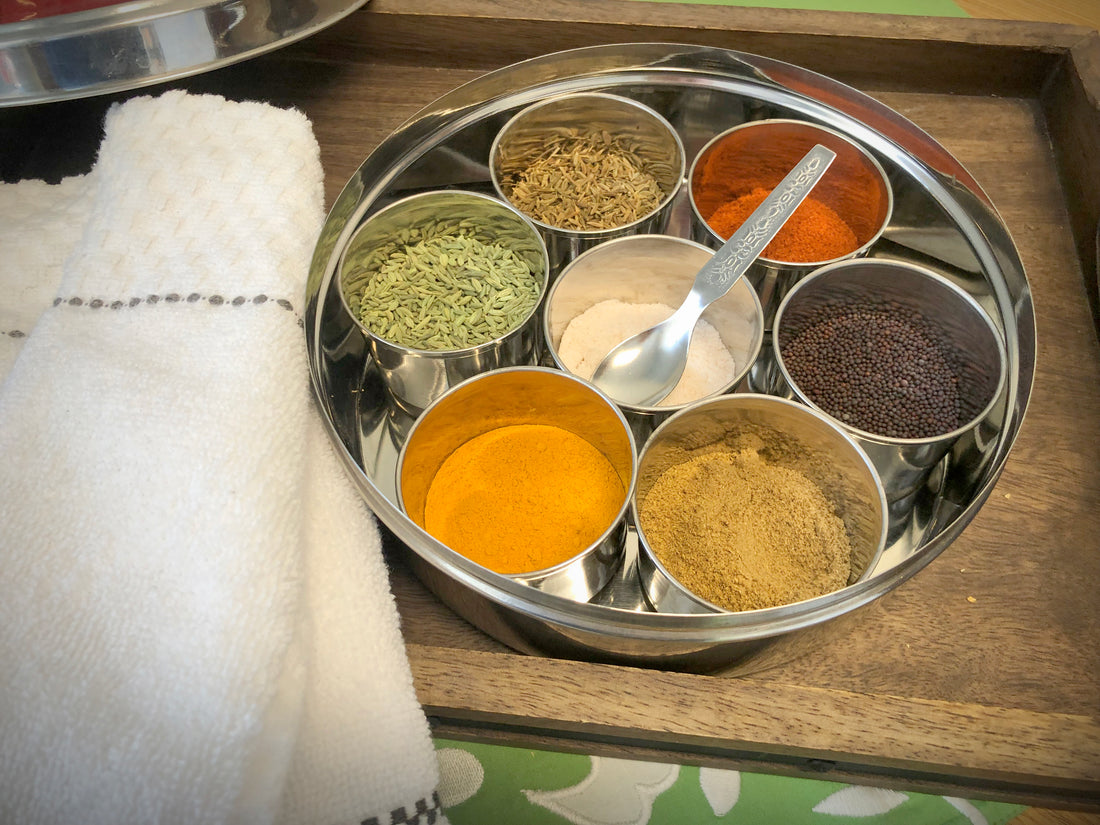Spices have been an integral part of human culinary traditions for centuries. Beyond their ability to enhance the flavors of our favorite dishes, spices also offer numerous health benefits. Packed with essential nutrients, antioxidants, and medicinal properties, spices can promote overall well-being and may help contribute to disease prevention. In this article, we will explore ten health benefits of spices, shedding light on their remarkable properties and how they can positively impact our health.
Anti-Inflammatory

Properties Many spices, such as turmeric, ginger, and cinnamon, possess potent anti-inflammatory properties. These compounds help reduce inflammation in the body, which is linked to chronic diseases like arthritis, heart disease, and other chronic issues. Including these spices in your diet may help combat inflammation and support a healthier immune system.
Digestive Health

Several spices, including cumin, fennel, and coriander, aid in digestion. They can stimulate the secretion of digestive enzymes, improve gut motility, and alleviate digestive discomfort. These spices can be particularly beneficial for individuals experiencing bloating, indigestion, or irritable bowel syndrome (IBS).
Blood Sugar
Control Spices like cinnamon and fenugreek have been shown to help regulate blood sugar levels. They may help improve insulin sensitivity, enhance glucose metabolism, and reduce post-meal blood sugar spikes. Incorporating these spices into your meals may benefit individuals with diabetes or those looking to manage their blood sugar levels.

Antimicrobial Effects
Certain spices, such as garlic, oregano, and thyme, possess natural antimicrobial properties. They may help fight against harmful bacteria, viruses, and fungi. Including these spices in your diet can support your body's defense against infections and promote a healthy immune system.
Heart Health
Spices like turmeric, garlic, and cayenne pepper may help contribute to heart health. They may help lower blood pressure, reduce cholesterol levels, and improve blood circulation. Regular consumption of these spices, along with a balanced diet and exercise, may reduce the risk of heart disease.
Weight Management

Spices such as black pepper, cayenne pepper, and ginger can aid in weight management. They have thermogenic properties, meaning they can increase metabolism and promote calorie burning. Incorporating these spices into your meals may help boost your weight loss efforts when combined with a healthy diet and regular physical activity.
Brain Health
Certain spices, including turmeric and sage, have been linked to improved cognitive function and brain health. They contain compounds that possess antioxidant and anti-inflammatory properties, which may help protect the brain against age-related decline and reduce the risk of neurodegenerative diseases like Alzheimer's.
Respiratory Health
Spices like ginger, cloves, and eucalyptus have expectorant and decongestant properties, making them beneficial for respiratory health. They can help relieve congestion, reduce coughing, and support healthy breathing. Including these spices in your diet or consuming them as herbal teas may provide respiratory relief.

Antioxidant Power
Many spices, such as cinnamon, cloves, and turmeric, are rich in antioxidants. These compounds help combat oxidative stress, which can damage cells and contribute to various diseases, including cancer and cardiovascular conditions. Adding these spices to your meals can boost your antioxidant intake and promote overall health.
Mood and Well-being
Several spices, including saffron and cardamom, have been traditionally used for their mood-enhancing properties. These spices can help alleviate symptoms of depression and anxiety, improve mood, and promote a sense of well-being. Incorporating these spices into your diet or enjoying them in herbal teas may support mental health.
What to Look for When Buying Healthy Spices
When buying healthy spices, there are several factors to consider to ensure you're getting high-quality and beneficial products. Here are some key things to look for:
Organic Certification
Choose spices that are certified organic. Organic spices are cultivated without the use of synthetic pesticides, herbicides, or genetically modified organisms (GMOs). They are generally free from chemical residues and offer a more natural and pure option.
Freshness
Look for spices that are fresh and aromatic. Fresh spices have more potent flavors and higher levels of beneficial compounds. Avoid purchasing spices that have been sitting on the shelf for a long time or those that lack fragrance.
Whole Spices vs. Ground Spices
Whole spices, such as whole cinnamon sticks or whole peppercorns, tend to retain their flavors and beneficial properties for longer periods compared to pre-ground spices. Consider buying whole spices and grinding them yourself when needed to ensure maximum freshness.
Packaging
Pay attention to the packaging of the spices. Opt for spices that are packaged in airtight containers or bags to maintain their freshness and prevent exposure to moisture, light, and air. Transparent packaging can also allow you to inspect the quality and appearance of the spices.
Source and Origin
Learn about the source and origin of the spices. Look for spices that come from reputable suppliers or regions known for their high-quality production. Different regions may have distinct flavors and characteristics associated with their spices.
No Additives or Fillers
Check the ingredient list to ensure there are no additives, preservatives, or fillers added to the spices. Some packaged spices may contain additional ingredients that can diminish their health benefits or introduce unwanted substances into your diet.
Spice Quality
Assess the appearance, color, and texture of the spices. They should look vibrant and have a consistent quality throughout. Avoid spices that appear dull, discolored, or have signs of moisture or clumping.
Storage Recommendations
Check if the packaging provides proper storage recommendations for the spices. Some spices may require specific storage conditions, such as keeping them away from direct sunlight or in cool, dry places. Proper storage can help maintain the quality and shelf life of the spices.
Personal Preferences
Lastly, consider your personal preferences and the flavors you enjoy. Experiment with different spices and blends to find what suits your taste buds and culinary preferences.
Conclusion
Spices offer a wide range of health benefits, ranging from reducing inflammation and supporting digestive health to promoting heart health and improving cognitive function. By incorporating a variety of spices into your meals, you can enhance both the flavor and the nutritional value of your dishes. However, it's important to note that while spices can be beneficial, they should be consumed in moderation, and individual sensitivities or allergies should be considered. As always, it's advisable to consult with a healthcare professional or a registered dietitian for personalized advice regarding your specific health needs.
Nataly Komova, fitness, and nutritionist expert
Human Nutrition & Health, BSc Hons
To learn more about the writer visit their website.

